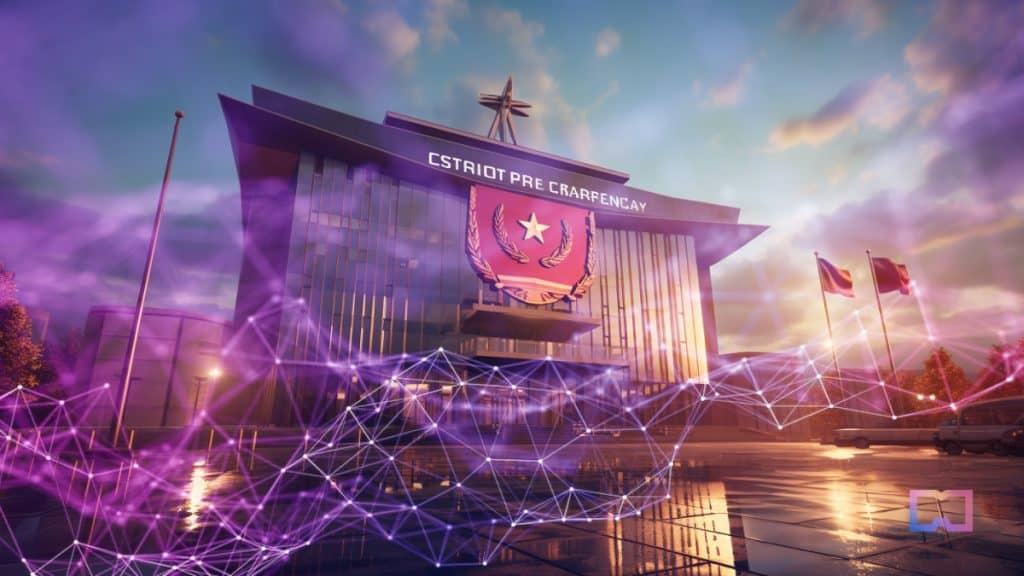China’s MIIT Sets Metaverse Standards to Boost Global Tech Leadership


In Brief
China’s MIIT is establishing metaverse standards to position the country as a global leader in innovative technology.
The metaverse, seen as a fusion of advanced technologies, holds the potential to drive innovative business models and contribute significantly to the digital economy’s growth, making China’s standardization efforts vital on a global scale.

China’s Ministry of Industry and Information Technology (MIIT) unveiled plans to create a working team tasked with defining guidelines for the metaverse sector. The new project aligns with Beijing’s aspirations to become a global leader in setting standards for innovative technologies.
The MIIT’s latest draft proposal identifies the metaverse as one of nine emerging technology sectors crucial for China to shape industry standards. Since becoming a tech trend in 2021, the metaverse has remained a debate, with no universally accepted definition.
The institute acknowledges these challenges, emphasizing the need for standardization and guidance to ensure the healthy and orderly development of the metaverse industry. Moreover, it highlights the sector’s vulnerability to market speculation due to its ambiguous definitions.
Furthermore, the MIIT sees the metaverse as a groundbreaking fusion of cutting-edge technologies that will foster innovative business models, open up new opportunities, and contribute to the growth of the digital economy. China’s move to lead in metaverse standardization underscores its ambition to shape the future of technology on a global scale.
China Sees Future in Metaverse
In June, the China Mobile Metaverse Industry Alliance launched, comprising 24 companies such as Huawei, HTC, Xiaomi, iFlytek, Mango TV, and Unity China. The alliance, led by one of China’s largest telecoms, aims to boost the metaverse ecosystem and the digital economy.
Last year, Huawei analyzed current and future opportunities in the metaverse. The Chinese tech company referred to Citibank’s estimation, which suggests that the metaverse market could have a valuation ranging from $8 trillion to $13 trillion by 2030, with approximately five billion users engaging in the metaverse.
According to Huawei, the metaverse’s primary interaction currently occurs through video games played on VR headsets. However, future projections indicate that the metaverse is evolving towards becoming the next iteration of the internet, often referred to as Web3. This open metaverse is community-driven and owned, interoperable, and prioritizes user privacy.
The metaverse’s future accessibility extends to various devices, including computers, gaming consoles, and mobile phones, underscoring its status as a vast and inclusive ecosystem.
Disclaimer
In line with the Trust Project guidelines, please note that the information provided on this page is not intended to be and should not be interpreted as legal, tax, investment, financial, or any other form of advice. It is important to only invest what you can afford to lose and to seek independent financial advice if you have any doubts. For further information, we suggest referring to the terms and conditions as well as the help and support pages provided by the issuer or advertiser. MetaversePost is committed to accurate, unbiased reporting, but market conditions are subject to change without notice.
About The Author
Agne is a journalist who covers the latest trends and developments in the metaverse, AI, and Web3 industries for the Metaverse Post. Her passion for storytelling has led her to conduct numerous interviews with experts in these fields, always seeking to uncover exciting and engaging stories. Agne holds a Bachelor’s degree in literature and has an extensive background in writing about a wide range of topics including travel, art, and culture. She has also volunteered as an editor for the animal rights organization, where she helped raise awareness about animal welfare issues. Contact her on agnec@mpost.io.
More articles

Agne is a journalist who covers the latest trends and developments in the metaverse, AI, and Web3 industries for the Metaverse Post. Her passion for storytelling has led her to conduct numerous interviews with experts in these fields, always seeking to uncover exciting and engaging stories. Agne holds a Bachelor’s degree in literature and has an extensive background in writing about a wide range of topics including travel, art, and culture. She has also volunteered as an editor for the animal rights organization, where she helped raise awareness about animal welfare issues. Contact her on agnec@mpost.io.





















































